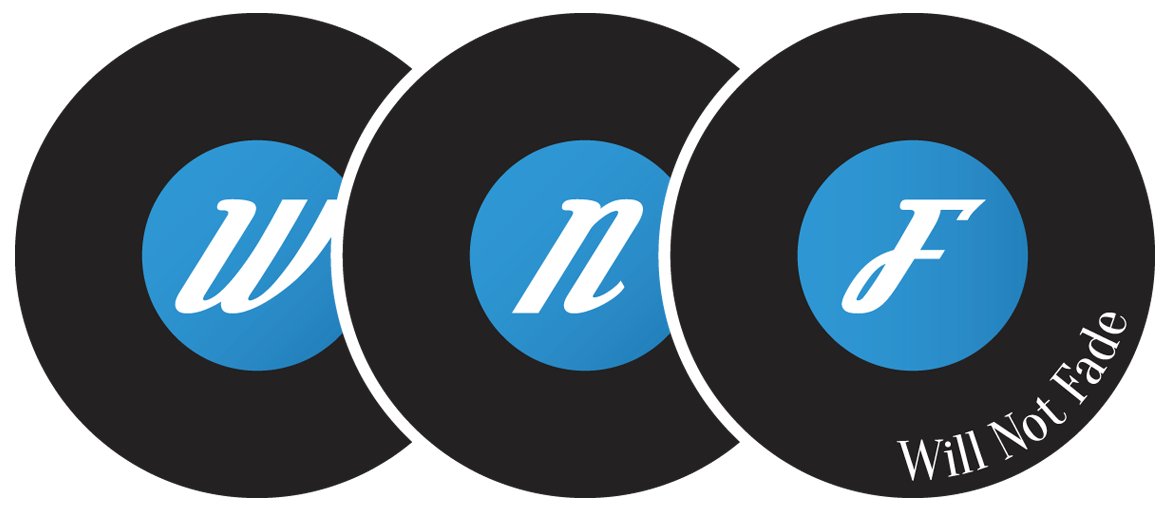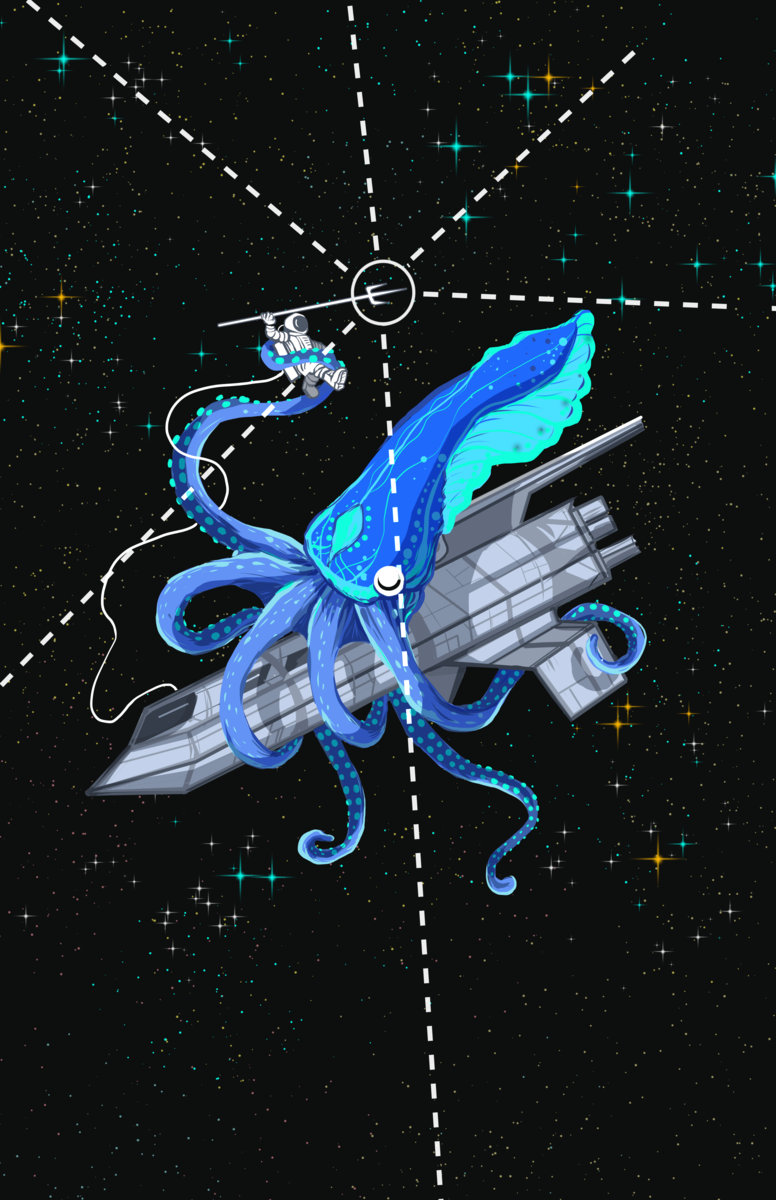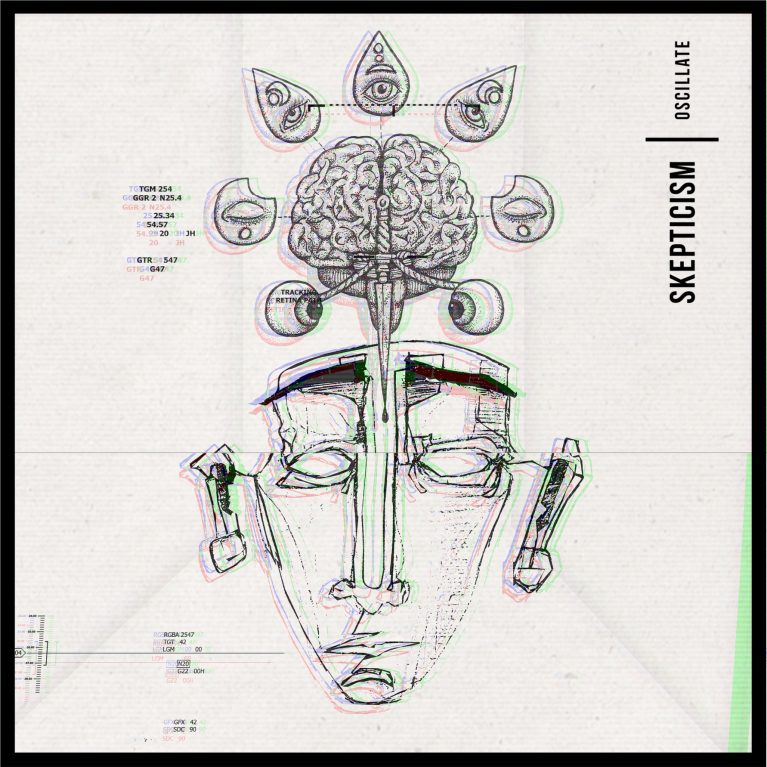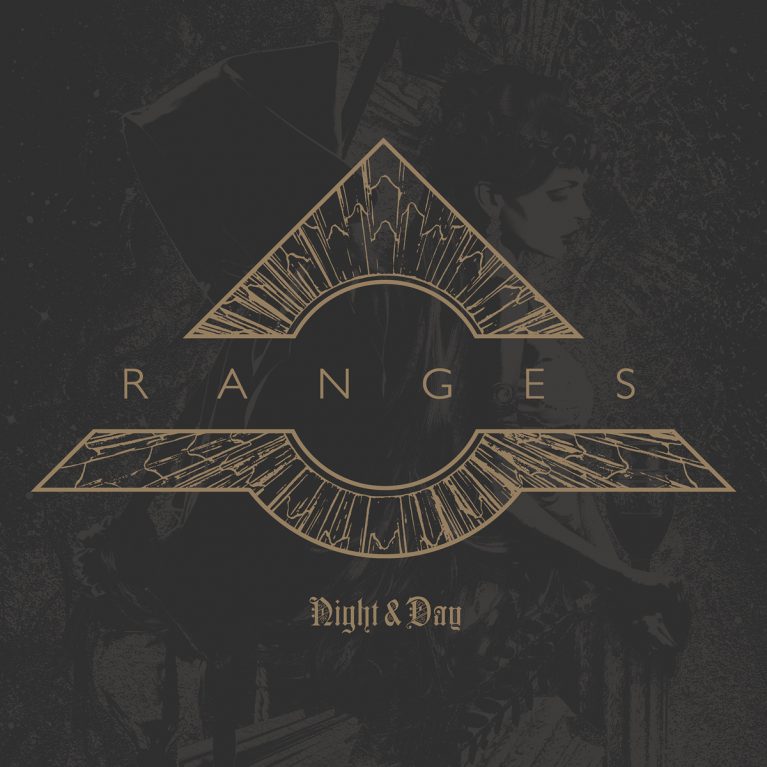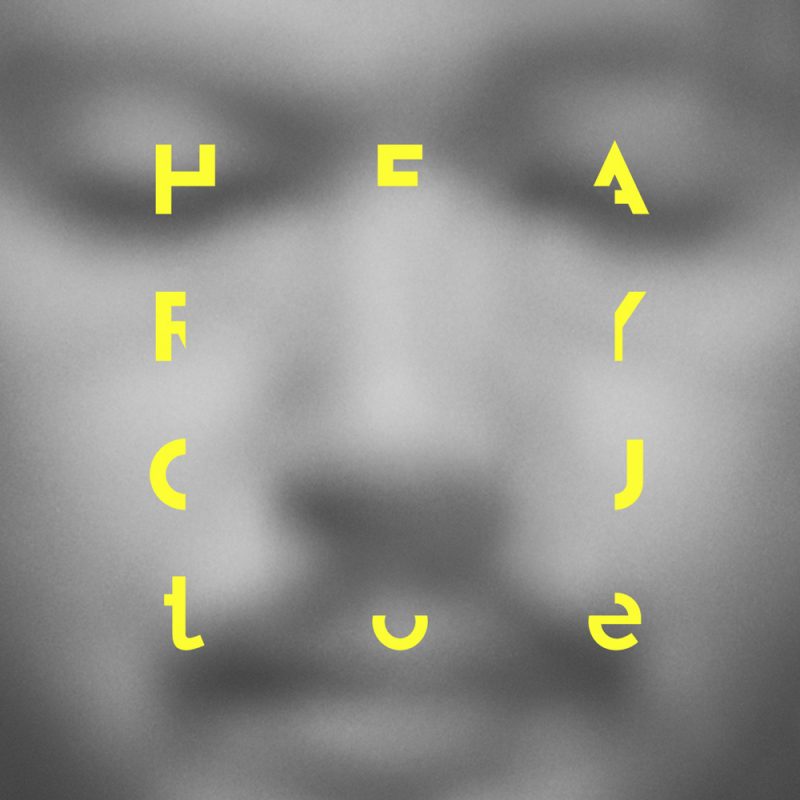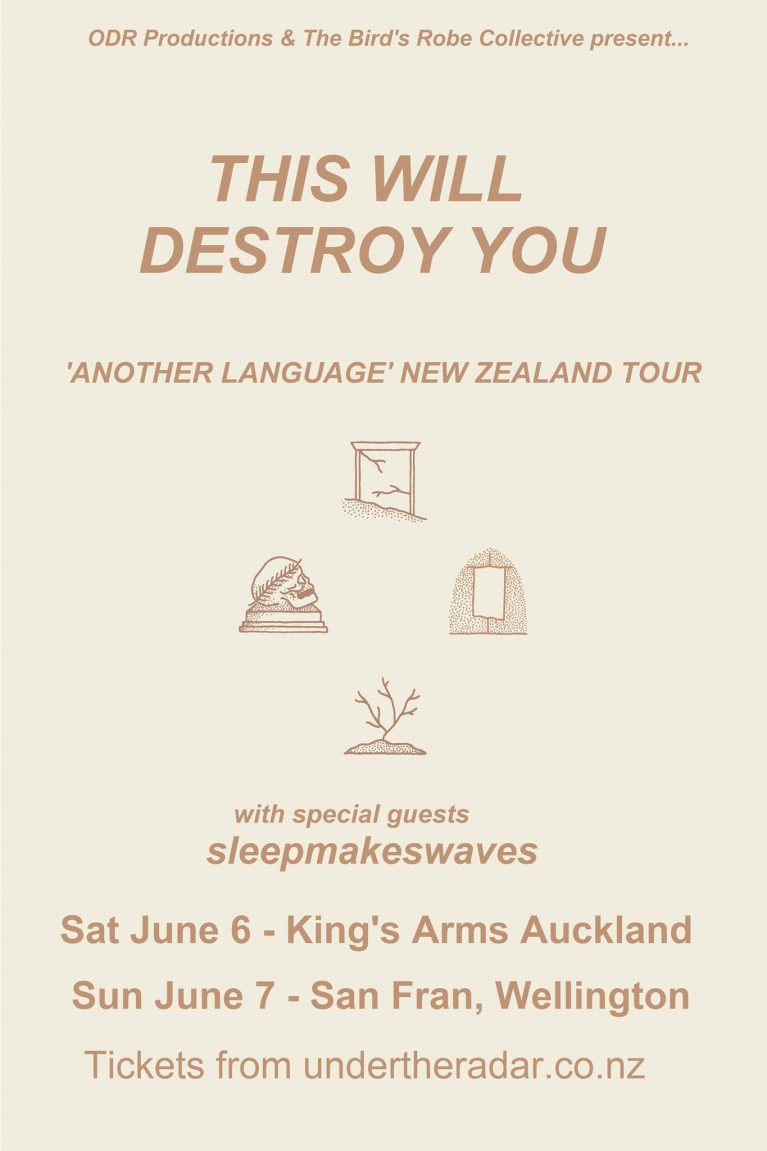
Post-rock quartet Red Hands Black Feet from Boise, ID
Is it about the journey or the destination? If I had to count on my fingers how many times I have had this age old debate I would need another set of hands. Whether between bandmates while stranded with an overheated van in the middle of Washington or with friends at a casual get together, this argument always tends to find it’s way back into the discussion. I’ve personally decided that it’s relative. And yes, my conclusion is technically a destination that required a journey through thought which once again begs the question, which was more important?
Thankfully, Boise’s Red Hands Black Feet has written and released a new album that is all about the journey. We Must Fall Forever If We Survive is the band’s second release and while the album is entirely instrumental, the underlying concept based around a space traveler’s struggle to stay adrift or return home adds a dimension that requires exploration. Like well constructed chapter titles, each song title provides a starting point for listeners to delve into their own imagination and explore Red Hands Black Feet’s musical journey.

“I Leave You And The Earth Behind” kicks of the record and moves from quiet, well thought out ambience into heavily fuzzed out, rolling ambience that masterfully prepares you for the rest of the album. After coming to understand the concept behind this album, one can’t help but begin to explore their own imagination as soft and subtle guitar work drifts passed you. The song continues to build very patiently before launching into an all out overdriven blitz that resolves the song beautifully.
“If I Let The Void In…” rolls in quickly with up tempo toms and aggressive guitars that eventually drop off into a bass driven, clean guitar groove. Steady, systematic drumming carries this song until the tempo begins to wane and break into a more experimental section. “If I Let The Void In…” has a very contemplative, questioning vibe that fits it’s title very well.
Red Hands Black Feet quickly answer their own question with the third song on their album, “…It Will Set Me Free“. Beginning with repetitive clean guitars supported by swells and cymbal rolls, the answer is revealed as a very solemn realization. Maintaining patience and precision, Red Hands Black Feet show their song writing strength as they ebb and flow through emotionally driven pushes and pulls.

“It Is Lonely In The Universe” is the longest track on the album and is therefore offered the time and space to explore. Once again staying true to their song titles, Red Hands Black Feet beautifully craft a soundtrack to aid your imagination in pondering the vastness of space. Dynamics are explored to their fullest from gentle clean sections to soaring heavy resolutions before the song finally ends with the heart-like beat of the kick drum.
Red Hands Black Feet conclude their sophomore album with “Here We Make Our Stand“. Entering with driven guitars and heavy, half-time drumming, the song screams defiance and strength. Like most of the tracks on this album, the finale moves in and out of tonal spaces to add great dynamics to the overall recording. The expertise and obvious care that was put into writing this album should be evident to even the casual listener.
Red Hands Black Feet have been working through their musical journey for a handful of years now and have truly put together a fantastic album in We Must Fall Forever If We Survive. I have a deep appreciation for bands who choose to tell a story with their craft, both through their music and the way in which they stitch their songs together to form a congruent and thoughtful album. Sometimes music is a great way to turn off, but there are other times where turning your imagination on and exploring the musical journey can be utterly fulfilling.
C.J. Blessum
